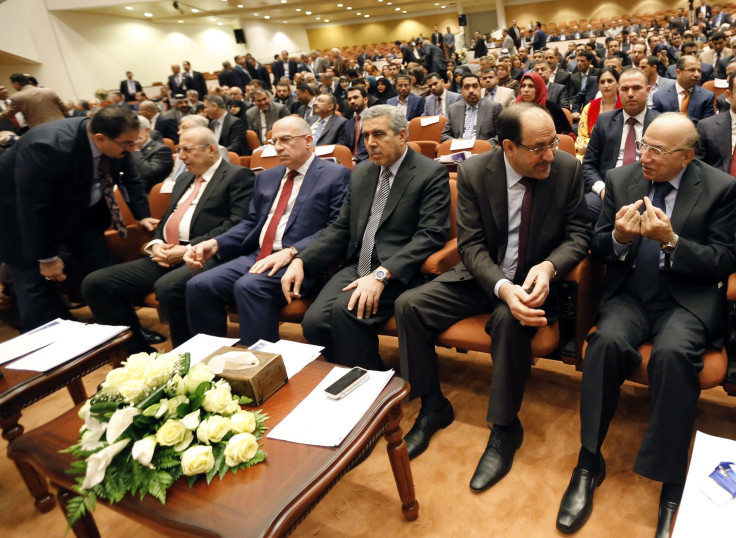Iraqi Parliament Can't Agree On Leadership, Could Delay Meeting Until July 13 Or Mid-August

Even as the extremist insurgency continues to build in the north, the Iraqi parliament has squabbled over when to meet next and continue negotiations to form a new government.
One estimate puts the next meeting in mid-August, but lawmakers came to a preliminary agreement to meet July 13, the Associated Press reported. Mahdi al-Hafidh, the acting speaker of the Iraqi Council of Representatives (the country's parliament) said he would announce the meeting date Tuesday.
Al-Hafidh’s office said that delay was because of an inability to come to an “understanding and agreement” over three top posts in the Iraqi government. Those posts are prime minister, president, and speaker of the Iraqi Council of Representatives. Parliament votes in all three posts, which go to a Shiite, Kurd and Sunni, respectively.
Incumbent Prime Minister Nouri al-Maliki is refusing to give up his bid for a third term despite growing disapproval of his handling of the threat from the Islamic State of Iraq and Syria (ISIS).
In a statement July 4 addressed to the Iraqi people, al-Maliki said he "will never give up the nomination for the post of prime minister. ... It is not the right of any other party to put conditions, because putting conditions means dictatorship, which is what we all strongly and firmly reject.”
A Shiite, al-Maliki has been reluctant to reach out to Sunnis and Kurds in Iraq, and the United States has expressed concern al-Maliki’s intransigence could fuel a breakdown along sectarian lines. As long as al-Maliki clings to power, Kurdish and Sunni lawmakers have refused to offer their nominations for speaker and president. Some Sunnis have joined the insurgency out of anger with al-Maliki.
The U.S. and al-Maliki opponents, including some in his own State of Law Coalition, have urged him to step down and allow a unity government to be formed.
The political setback comes as Maj. Gen. Negm Abdullah Ali, the commander of the Iraqi Army’s sixth division, was killed by an Islamic State mortar blast about 10 miles northwest of Baghdad. Ali’s sixth division was tasked with protecting a portion of Baghdad.
© Copyright IBTimes 2024. All rights reserved.






















